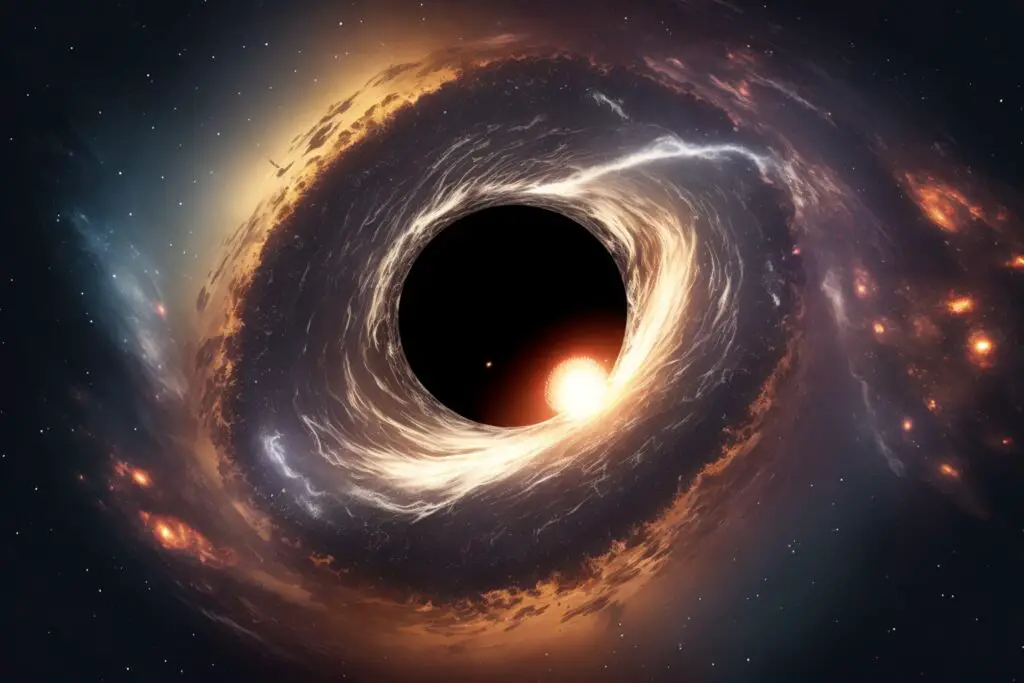Rotating black holes may serve as gentle portals for hyperspace travel.
The concept of using black hole as portals for hyperspace travel has long been a cherished scenario in science fiction.

Recent discoveries by physicists suggest that this fantasy may be closer to reality than previously imagined, particularly with rotating black holes.
Table of Contents
The Mystery of Black Holes
Black holes are some of the most mysterious objects in the universe. They are the result of gravity crushing a dying star without limit, leading to the formation of a singularity – an object with infinite density. This dense and hot singularity punches a hole in the fabric of spacetime itself, potentially opening up an opportunity for faster space travel. This would allow for travel over cosmic scale distances in a short period.
The Challenge of Hyperspace Travel
Previously, researchers believed that any spacecraft attempting to use a black hole as a portal for space travel would have to contend with nature at its worst. The hot and dense singularity would cause the spacecraft to endure a sequence of increasingly uncomfortable tidal stretching and squeezing before being completely vaporized.
Portals Through Rotating Black Holes
However, new research has shown that not all black hole are created equal. If the black hole, like Sagittarius A* at the center of our own galaxy, is large and rotating, then the outlook for a spacecraft changes dramatically. The singularity that a spacecraft would have to contend with is very gentle and could allow for a very peaceful passage. This is because the relevant singularity inside a rotating black hole is technically “weak,” and thus does not damage objects that interact with it.
The Feasibility of Hyperspace Travel
The feasibility of using large, spinning black hole as portal for Space travel has been increased by these findings. The effects of the singularity in the context of a rotating black hole would result in rapidly increasing cycles of stretching and squeezing on the spacecraft. However, for very large black hole, the strength of this effect would be very small, so the spacecraft and any individuals on board would not detect it.
The Future of Space Travel
While more research is needed before we’re anywhere close to successfully traveling through a black hole, these findings provide a promising direction for future research. When we are ready, one of the safest passageways might be the supermassive black hole at the center of our galaxy, Sagittarius A*, potentially serving as our ticket out of the Milky Way.
Reference(s):

